The life and safety of queer people has seen a great improvement in the past decades, but there is still a large push to be made forward, according to some members of the local queer community.
John Sharp, 39, graduated from Harrison County High School in 2003 — a time when he was one of the only openly queer people in town. Now, he’s married and living in Cynthiana with his husband.
Growing up gay with few queer mentors around him, Sharp praised his supportive straight family for the community they provided, but mused about what could have been if there were more queer spaces for him to grow up in.
“All of the people that would have been mentors to me or people I would have looked up to, they died in AIDS. We lost a whole generation of artists, mentors, people that I could have looked up to, and I think that created a lot of stigma,” Sharp said. “There was no one to pass on that information, that torch.”
Cultivating a culture of acceptance requires open mindedness and the feeling of safety, which some queer people said is hard to find in Harrison County.
Differences are weaponized, and queer folks have been on the receiving end of discrimination for their whole lives. Even the “lucky few” who didn’t consider themselves to have been victims of harsh discrimination said they have had to dim their light to protect their own safety.
Growing up in an area with “quietly queer” people proved to take a toll on Sharp’s progression as he grew up. He moved to Lexington and found himself struggling to adapt to gay culture. He met his now husband and the pair set off to make spaces where they could be themselves.
Sharp said he encourages the queer people he knows to live in small communities rather than big cities to have a greater influence on their area.
“I think it’s so important to be gay in a small community because the only way you can ever effect change is to be visible. New York has enough liberal gay people. Cynthiana doesn’t,” Sharp said.
Sharp’s husband Justin Simpao, 32, grew up in New York and graduated high school in 2009, but did not come out as gay until his freshman year of college.
The couple said even with just a six-year difference in their high school experiences, they felt like queer acceptance came easier by the time Simpao entered high school. Shared experiences of bullying and living as a non authentic version of yourself can often bring queer youth together, according to Simpao.
“I feel like I’m always changing and evolving and becoming the person that I’m supposed to be, but I dont think I’m even there yet,” he said. “Even if you’re not a queer person, we’re all on this journey of life and trying to figure out who we are, where we belong in the world and it’s okay to be afraid. It’s okay to dim your star because maybe you don’t feel safe or maybe you don’t feel like people accept you, but just know that when the time is right you’ll know what to do.”
When a United States Supreme Court decison legalized same-sex marriage nationally in June 2015, a local woman knew exactly what action to take. A mere three days after the legalization of same-sex marriage, Marlena Fryman and her wife became the first same-sex couple to be married in Harrison County.
A 2011 graduate of Harrison County High School, Fryman did not identify as a lesbian until college, but said if she knew in high school she wouldn’t have told anyone out of fear for her safety.
“You see stuff about ‘representation matters’ all the time. When I was in school, I didn’t see anybody like me. You have all of these stereotypes and you think that that’s how you have to be, and then you wonder what’s wrong with you because you don’t fit in with the stereotypes but you also aren’t straight,” she said. “You don’t have to be the stereotype. You have people who support you.”
Current high school senior Lily Moses first realized she was queer around middle school. She said she never had so much as “a school yard crush” on boys in elementary school, and realized she might be a lesbian after meeting other queer people.
Having a community and people to look up to helped shape her experience and gave her the confidence to be herself, Moses said.
“I have no illusions about how supportive the area I live in is. I know that for every person who is perfectly okay with who I am, there’s going to be a lot who aren’t — and I’ve definitely heard a lot of hate from various people,” she said.
Shania Perkins, 31, came out as a gay man in high school. After graduating from Harrison County in 2012, she came out as a trans woman.
Often called a “fag” and other homophobic slurs in school, as Perkins grew into herself and said she found it simpler to live as an authentic version of who she is.
“I’m myself now. I’m not somebody who’s closeted, I’m not somebody kept secret or hidden. I’m finally out of the dirt. I dusted myself off, polished up a bit. Now I feel like I shine, because I’m finally me and that’s the beautiful part about it,” Perkins said.
While steps have been taken to make growing up queer in Harrison County safer, Perkins said there is more work to be done.
In 2021, gender queer high school senior Izzy Sims took it upon themselves to create a safe space for queer kids at school — though that didn’t go as smoothly as they would have liked.
Sims had heard of surrounding county schools having a Gay-Straight Alliance, or GSA, and thought Harrison County High School should offer one too. They worked to create a curriculum-based queer history club to offer a space for queer students to be themselves.
The high school site-based council denied the official club status, but said students could meet as an outside group not affiliated with the school, so began the Alliance Group.
Sims said one reason the council cited for not approving the GSA club was fear of putting a target on queer students’ backs.
“The issue with that is people already get targeted. The point of the group is for them to at least have somebody to talk to when that happens,” Sims said. “Queer people are still going to get bullied and made fun of because some people can’t hide that fact.”
This year, Moses decided to try Alliance Group and found a space where she can be herself without fear of discrimination. In her experience, students at the high school are “not exactly the most welcoming.”
The support from teachers and fellow queer students at the high school has made a world of difference. When Moses first started looking for safe spaces to be herself in Cynthiana, she didn’t expect to find much. As she got to know more people in town, she found herself welcomed in more areas than she expected.
“It’s just kind of nice to be in a room and know that I was just around other people who had similar experiences as mine,” Moses said.
Moses has benefited from an offering, albeit non-school affiliated, that other Harrison County students haven’t been able to enjoy.
Branson Gillispie, a gay 2019 graduate of Harrison County High School, took his boyfriend to senior prom. While he didn’t feel a higher sense of purpose with the simple act, he acknowledged it was a “big moment” for the community.
Gillispie recalled the culture shock he faced in college after being introduced to a more open community.
“In high school I never really identified myself as queer, I was just gay, and so coming to (Transylvania University) and hearing people identify as queer at first was kind of shocking to me,” he said. “I had always heard that as an insult. So when I heard people say they identified as a queer person it was very jarring at first, just because I had never really been exposed to that and the reclaiming of that word.”
Queer activist Kendal Butler led the fight to pass a fairness ordinance in Cynthiana in 2020 to create protections for the queer community. Through months of lobbying, legal language tweaks and countless community interviews, Butler and other bill proponents pushed forward with the goal of making a better future for queer youth in Cynthiana.
While the original measure sought to protect queer people, the passed ordinance protects from discrimination on the basis of race, color, religion, national origin, sex, age, familial status, disability, gender identity and sexual orientation.
“People go where they’re celebrated, not just tolerated. With small-town Kentucky, and Tennessee and Alabama — all where I’ve lived — we all knew LGBTQIA + people that were tolerated or in the shadows and that’s not healthy,” Butler said. “We want to make this place somewhere where everybody’s celebrated.”
The community will soon have another safe space to explore their identities. Last week Alyssa Dailey announced Advent Pride, an LGBTQ+ support group to be held at the Church of the Advent. She said living in a small town has opened her eyes to the lack of local resources and support for the queer community.
She wants to see a change, so she said she’s making one. Dailey is a member of the Church of the Advent and asked her deacon for a place to host the group. Though meetings start next week, Dailey said the agenda is still up in the air.
Everyone is welcome to come, regardless of faith, race, class or orientation — the club is a space for everyone, according to Dailey.
“Having a welcoming and accepting space for LGBTQIA+ is important because it provides them with a sense of belonging and safety. It allows them to hold a space where they are allowed to express themselves without fear of judgment or discrimination,” she said.
Dailey said the group will support the overall wellbeing and mental health of the queer community by promoting inclusivity and equality within Harrison County.
Simpao said he will continue to share his “sunshine” in this community he found himself transplanted to in hopes of showing the younger generation it is possible to be queer and successful in a small rural town.
“Cultivating culture in a small community, specifically queer culture in a small community, I think is so important,” he said. “Being visible within the community and knowing that there are successful people in the queer community that are just normal people.”
”I have no illusions about how supportive the area I live in is. I know that for every person who is perfectly okay with who I am, there’s going to be a lot who aren’t — and I’ve definitely heard a lot of hate from various people.” — Lily Moses


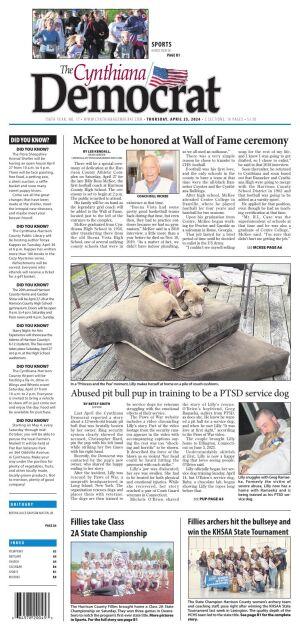


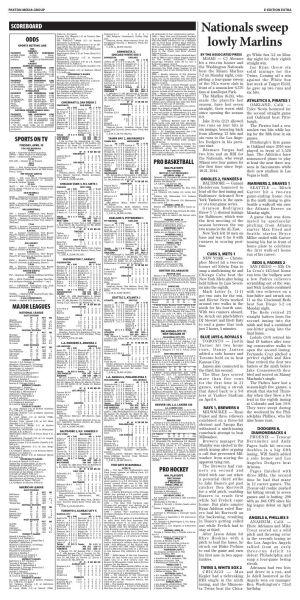
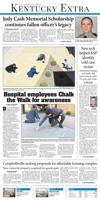
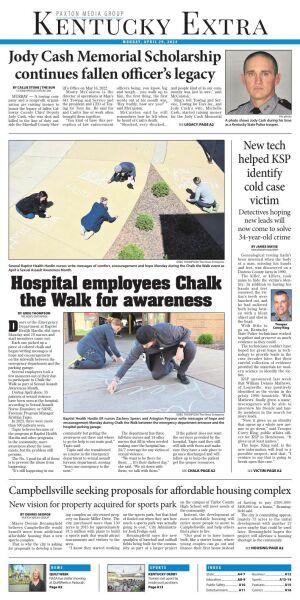

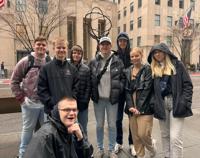

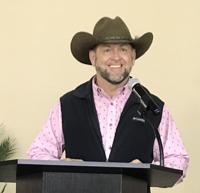

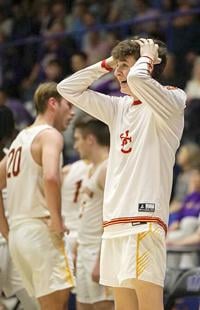
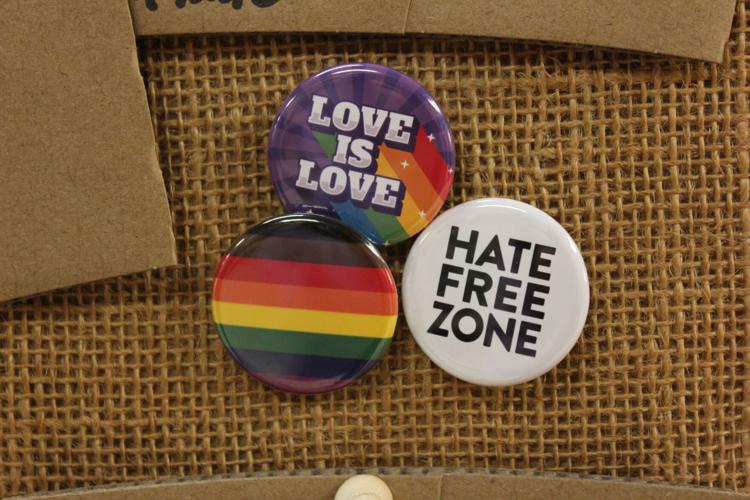
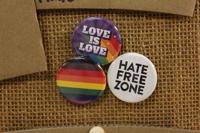

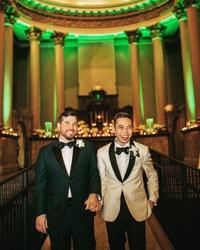

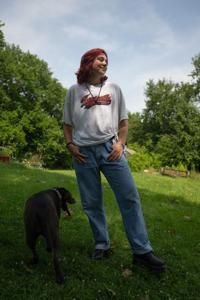

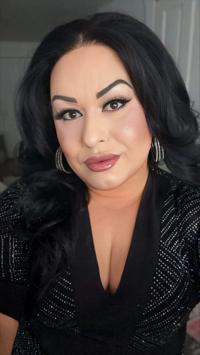

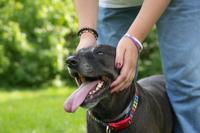




(0) comments
Welcome to the discussion.
Log In
Keep it Clean. Please avoid obscene, vulgar, lewd, racist or sexually-oriented language.
PLEASE TURN OFF YOUR CAPS LOCK.
Don't Threaten. Threats of harming another person will not be tolerated.
Be Truthful. Don't knowingly lie about anyone or anything.
Be Nice. No racism, sexism or any sort of -ism that is degrading to another person.
Be Proactive. Use the 'Report' link on each comment to let us know of abusive posts.
Share with Us. We'd love to hear eyewitness accounts, the history behind an article.